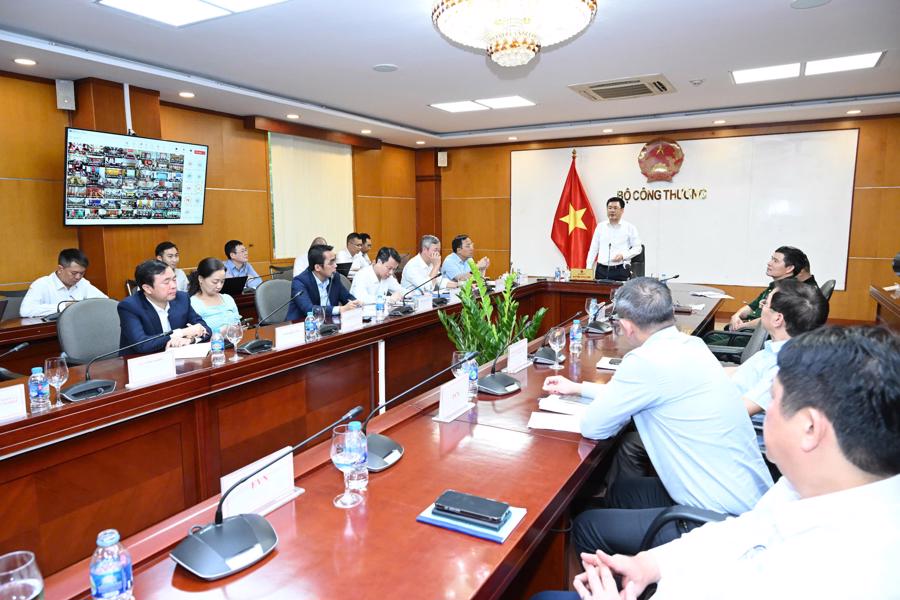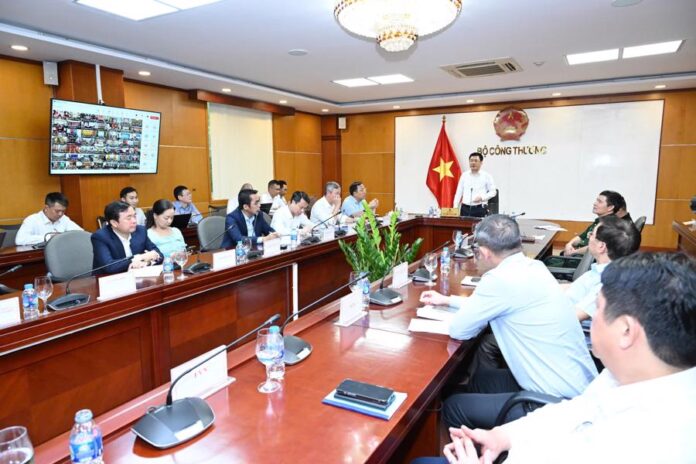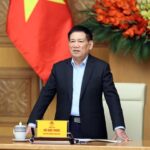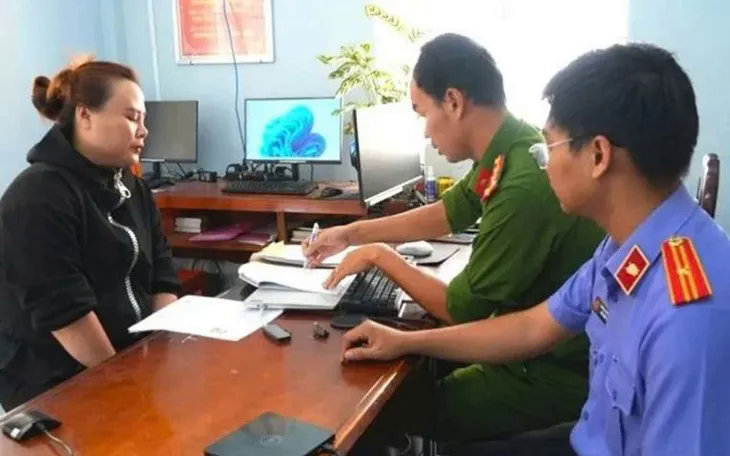On April 28, in Hanoi, the Ministry of Industry and Trade organized a ceremony to announce the Master Plan for National Power Development for the period 2021–2030, with a vision towards 2050 (Power Development Plan 8 Adjustment). The event emphasized ensuring energy security, promoting a green transition, and requiring practical implementation from local authorities and businesses.
OBJECTIVE: INCREASE POWER SUPPLY TO MEET SOCIO-ECONOMIC DEVELOPMENT DEMANDS
At the ceremony, Mr. Pham Nguyen Hung, Director of the Electricity and Renewable Energy Authority (Ministry of Industry and Trade), shared that on April 15, 2025, the Prime Minister issued Decision No. 768/QD-TTg approving the Power Development Plan 8 Adjustment. Accordingly, the Master Plan was constructed with the overarching goal of firmly ensuring national energy security, meeting socio-economic development demands, modernizing production, and aligning with the global energy transition trend.
According to the Master Plan, the average GDP growth rate is projected at approximately 10.0%/year during 2026–2030 and around 7.5%/year in the 2031–2050 period. Commercial electricity demand in 2030 is estimated to reach about 500.4–557.8 billion kWh, with a target of 1,237.7–1,375.1 billion kWh by 2050. Total electricity production and imports in 2030 are expected to be around 560.4–624.6 billion kWh, reaching 1,360.1–1,511.1 billion kWh by 2050. The maximum capacity of the system in 2030 is projected at 89,655–99,934 MW and is expected to reach 205,732–228,570 MW by 2050.
In terms of technical indicators, the Master Plan aims for Vietnam to be among the top 4 ASEAN countries in terms of power supply reliability and among the top 3 in the electricity access index by 2030. Additionally, it strives for 50% of offices and 50% of households to utilize rooftop solar power by 2030.
Immediately after the approval of the Master Plan, the Ministry of Industry and Trade sent documents to the People’s Committees of provinces and centrally-run cities, energy corporations, and relevant units to effectively implement the decision, ensuring a stable power supply in all situations.
SPECIFIC REQUIREMENTS FOR LOCAL AUTHORITIES AND BUSINESSES
Speaking at the event, Minister of Industry and Trade, Mr. Nguyen Hong Dien, emphasized: “The organization and implementation of the Power Development Plan 8 Adjustment is of decisive importance in ensuring a stable power supply for the country’s economic development.”
For local authorities, the Minister requested an urgent review and update of the projects related to power sources and grids mentioned in Decision 768/QD-TTg into the provincial Planning, Provincial Power Development Plans, and land use planning. This process should ensure alignment with the allocated capacity and priority list already submitted to the Ministry of Industry and Trade to serve as a basis for receiving and implementing investment projects.

Additionally, local authorities should pay close attention to power sources below 50 MW, mainly renewable energy sources, connected to the 110 kV grid, which falls under the jurisdiction of provincial planning. The Minister suggested including these types of projects in the local grid development plan to provide a legal basis for their implementation. In parallel, it is necessary to promptly select investors, allocate land for power projects, support land clearance and resettlement, and ensure the progress of key projects.
Specifically, the LNG projects in Nghi Son, Quynh Lap, and Ca Na should complete the selection of investors by the end of the second quarter or the beginning of the third quarter of 2025. For other LNG projects, including Hai Phong, Cong Thanh, Vung Ang 3, Quang Trach 3, and Hiep Phuoc 2, the approval of investment policies and the selection of investors must be finalized by the end of the third quarter or the beginning of the fourth quarter of 2025.
The Minister emphasized that the progress of these projects is considered a decisive factor in ensuring national energy security. Local authorities need to resolutely address any obstacles related to renewable energy projects in the spirit of Government Resolution 233/NQ-CP. They should also monitor the progress of these projects and proactively propose replacing slow-moving projects with more feasible alternatives, even for projects expected to operate after 2031.
In addition to local implementation, Minister Nguyen Hong Dien also directed units under the Ministry of Industry and Trade to focus on advising the Government on perfecting the institutional framework, especially financial, electricity pricing, and investment policies. Simultaneously, it is crucial to establish a market-based electricity pricing mechanism that ensures attractiveness and competitiveness to attract domestic and foreign investors to develop power sources, particularly renewable energy and LNG.
The Minister requested that the functional units enhance communication and promote the core content of the Power Development Plan 8 Adjustment to various ministries, sectors, localities, businesses, and international partners to create consensus in implementation. Concurrently, the Ministry will coordinate with relevant units to build and submit to the Prime Minister for approval a Plan for implementing the Master Plan, ensuring transparency and synchronization in execution.
In the energy sector, large corporations and companies, such as the Vietnam Electricity Group (EVN), the Vietnam National Oil and Gas Group (PVN), the Vietnam National Coal-Mineral Industries Group (Vinacomin), and the Dong Bac Corporation, were assigned specific tasks to ensure stable and timely power supply.
Accordingly, EVN is required to continue reviewing and adjusting the pricing framework for various forms of electricity to align with market trends and attract investors. Simultaneously, they should focus on constructing a synchronous transmission system, including inter-regional and intra-regional connections, and accelerating the progress of negotiations for nuclear power projects like Ninh Thuan 1.
For PVN and Vinacomin, the Minister directed them to review and ensure the adequate supply of primary energy sources for power generation while proactively implementing the Ninh Thuan 2 nuclear power project and other assigned power sources and grids.
With its assigned functions, the Ministry of Industry and Trade pledges to accompany ministries, sectors, localities, and businesses in implementing the Master Plan. The Ministry will closely monitor project progress, support the resolution of difficulties, and strictly handle cases of slow implementation to ensure national energy security.
Minister Nguyen Hong Dien affirmed that the Power Development Plan 8 Adjustment serves not only as a tool for guiding the development of the electricity industry but also as a foundation for attracting investment and promoting long-term socio-economic development. The success of this Master Plan depends on the determined, synchronized, and efficient involvement of the entire political system, from central to local levels, as well as the capacity and responsibility of investors and businesses.
Powering the Long Thanh Airport: An Electrifying Endeavor
To ensure an uninterrupted power supply for construction activities and immediate electricity access when the Long Thanh International Airport commences operations, Dong Nai Power Company, a subsidiary of Southern Power Corporation (EVNSPC), has been diligently undertaking management, operation, and investment activities for the power system.
“Petrovietnam: Leading the Charge for Accelerated, High-Impact, Double-Digit Growth”
Petrovietnam, as a prominent state-owned enterprise, plays a pivotal role in Vietnam’s socioeconomic development. The company’s contributions are integral to ensuring the five key pillars of national security: energy security, food security, economic security, social welfare, and the sovereignty of our maritime territories.




















